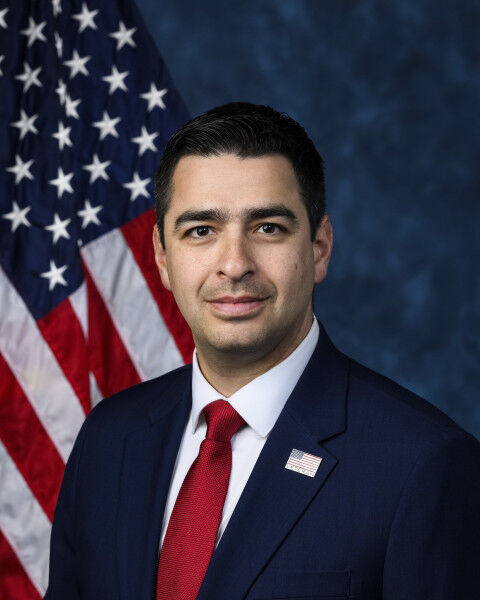Build Back Better shows need for single-subject votes


The Build Back Better (BBB) Act is the latest omnibus bill by Congress. These measures are catch-all bills which cover a wide range of areas under a very broad and catchy title. Because there are so many programs and policies in these measures, they tend to be very lengthy. In the case of BBB it is 2,171 pages in length. In comparison, Leo Tolstoy’s War and Peace is around 1,400 pages and the Bible is around 1,300 pages.
The BBB measure currently includes universal prekindergarten, expansion of health coverage, environmental justice, housing assistance, climate change strategies, economic development , child care, tax policy and more. Underneath those broader topics are many programs and policies toward implementing the broad objectives of the bill that will shape our country for many years to come.
Because of the length and complexity of omnibus bills, like the BBB, few people read the entire bill and even fewer understand what is in them. Even Congressional leaders and sponsors, who are responsible for crafting the measure, don’t fully understand. This is evident as many of them struggle to answer questions from constituents, interest groups, or the media when asked about a particular provision in these bills that they may not be aware of or understand.
Wrapped into these omnibus bills may be programs and spending that could not pass if considered by themselves in a separate bill. Instead, because they are packaged as part of these overall bills, Congressional members choose to ignore or hold their noses and accept them to enable the bill, with other elements of importance to them, to pass. Lumping these items together is actually part of the strategy in passing these measures. If the bill includes enough items that various legislators like, it better allows them to accept other provisions in the bill that they dislike or may loathe (i.e. the increase in the state and local property tax deduction that many progressives dislike because it benefits wealthier people). It’s the concept of a “teaspoon of sugar helps the medicine go down”.
These large, catch-all measures work to the advantage of special interest groups. Including a program that may cost $50 million is a rounding error in a bill that is $2.2 trillion. It becomes a simple concession to a legislator or interest group. These items get tossed into the bill because of the power and influence of certain groups as well as a means to gain votes of different representatives or senators. They also serve as an important payback to certain groups for their support and contributions.
While Republicans are decrying the BBB Act as a Christmas tree bill for Democratic interests, the reality is that these bills are not the exclusive domain of one party or another. Both Democrats and Republicans have used them in the past depending upon whose party was in power.
While many Congressional leaders and representatives provide lip service for greater transparency and accountability, omnibus bills are the antithesis of those concepts. In the case of accountability, many provisions are added to the bill with only limited analysis as to cost, impact, or implications of the action.
An overworked and stretched Congressional staff trying to juggle hundreds of moving parts in the bill has little time or ability to recalculate accurately the effect of the latest amendment or proposed change in the bill. With regards to transparency, the general public has only a broad sense of the measures, shaped in a large part by paid ads by different groups that encourage them to contact their representatives toward supporting or opposing major elements in the bill. For the most part, the public is in the dark as to many items in these bills and there is limited public engagement or discussion on many provisions in these measures. Much of the negotiations on these omnibus bills are done behind closed doors, with the public only finding out later the product of those discussions.
Omnibus bills act to further erode the public’s image and trust in Congress which is already at historic lows with only 20% viewing the body as doing a good job.. Much of the dissatisfaction by the public is due to a perception by many that Congress is controlled by powerful special interests who wield an extreme amount of influence with the average person and their views meaning little. Omnibus bills act to fuel this mistrust because they truly are the ultimate “insiders’ game” where a powerful few broker deals up to the last minute as to what goes in and stays out of the bill .
Unlike Congress, Colorado and 40 other states have rules that bar these multi-subject, complex omnibus measures. Those states have a single-subject rule for legislation in their state houses. That rule generally requires that any bill that is introduced cannot contain more than one subject and that the subject must be stated clearly in the title of the measure. Further those laws preclude the inclusion or addition of items that go beyond the title or subject of the bill.
While some have suggested that the Constitution be amended to mandate a single-subject rule for all federal legislative measures, this could be done without changing it. Both the US Senate and the House have rules that guide the governance and operation of those bodies. While not as strong as a constitutional change, both Congressional houses could adopt a governance tenet for their respective bodies related to a single-subject rule which could accomplish the same goal.
The adoption of a single-subject rule by Congress would allow more time for review, discussion and debate on the merits of different federal programs or policies. It would mean the end of bills that run thousands of pages in length that few read or understand. The change would permit greater public participation and involvement in the process as well as curtailing the back room deals which are trademarks of these omnibus bills. Finally, adoption of a single-subject rule could go a long way in restoring public trust and the belief that Congress is truly serious about being accountable and transparent.
Greg Fulton is the president of the Colorado Motor Carriers Association, which represents over 650 companies directly involved in or affiliated with trucking in Colorado today.













